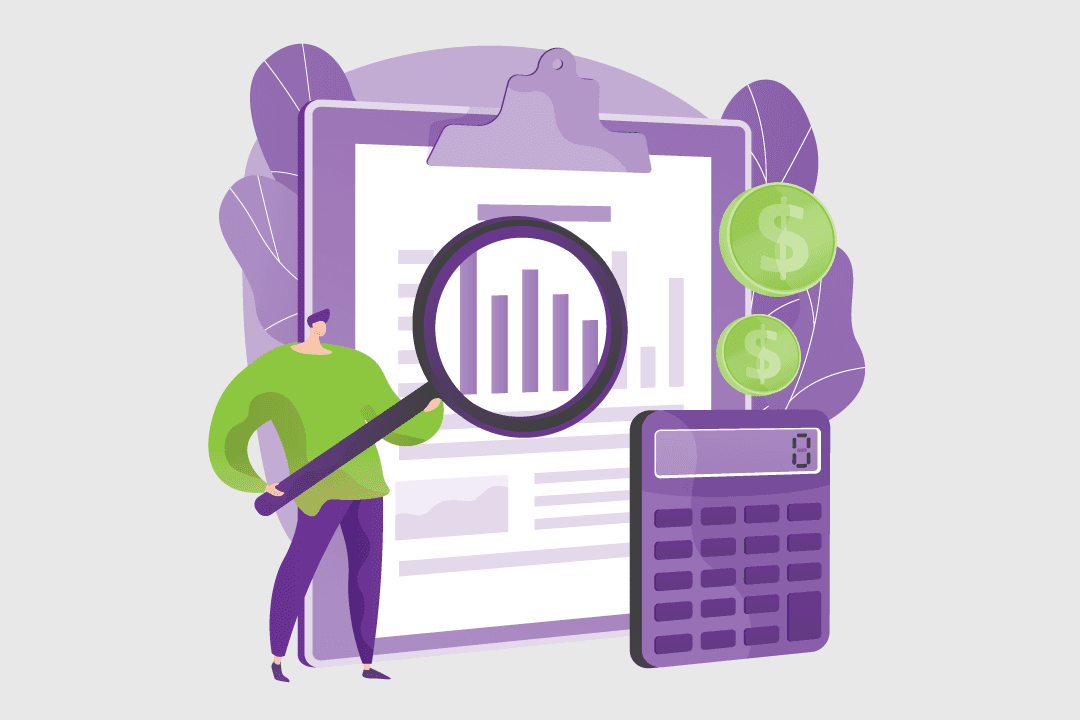Accounts assistant job description
Let’s get real. Job information online can often be overly optimistic — conveniently glossing over the raw bits. But when you’re making decisions about your future, you need all the facts.
That’s why we anonymously surveyed accounts assistants about their job, with hopes of getting an honest insight into what it’s really like.
While we did our best to ensure respondents were Australians and verified their job titles with proof of employment, we can’t guarantee complete accuracy — or that your experiences in the field will reflect theirs. So, we suggest that you take these insights as a guide only and try to talk to people in the field before making an important decision.
Tasks and responsibilities for an accounts assistant
Accounts assistants are the right-hand people to senior employees in an accounting firm and use their strong organisational skills and good attention to detail to support their team in many ways.
Account assistant duties can include:
- Supporting accountants and the wider finance team
- Reconciling accounts
- Processing payments and invoices
- Preparing tax returns
- Communicating with clients and suppliers
- Processing financial transactions
- Preparing financial reports and financial statements
- Resolving financial discrepancies
- Accurately maintaining financial information
- Filing various financial records
- Updating ledgers and spreadsheets
- Taking meeting minutes
- Performing necessary administrative duties for the business
How to become an accounts assistant
-
Study
To gain the essential skills needed to work in the finance industry, you can complete a VET course through TAFE or an RTO (registered training organisation). Courses like a Diploma of Accounting (FNS50217) or a Certificate IV in Business Administration (BSB40515) will provide you with a broad understanding of systems and processes necessary to enable you to join the industry with confidence.
-
Further study
Those who wish to progress further in the accounting industry can complete a Bachelor of Accounting. This degree prepares learners for a role as an accountant and significantly increases career progression outlook.
Pathway options
Not only is a career in accounts administration a solid choice for the long-term, but it can also lead to job growth and open you up to many other opportunities.
Some career paths could be:
Junior
-
Accounts assistant
Most common qualification: Diploma of Accounting (FNS50217)
Mid
-
Accounts administrator
Most common qualification: Certificate III in Accounts Administration (FNS30317)
-
Bookkeeper
Most common qualification: Certificate IV in Accounting and Bookkeeping (FNS40217)
-
Payroll officer
Most common qualification: Diploma of Payroll Services (FNS50417)
Senior
-
Accountant
Most common qualification: Bachelor of Accounting
-
Accounting manager
Most common qualification: Advanced Diploma of Accounting (FNS60217)
-
Auditor
Most common qualification: Bachelor of Accounting
-
Chief financial officer (CFO)
Most common qualification: Master of Business Administration (MBA)
-
Tax accountant
Most common qualification: Bachelor of Accounting
Explore related qualifications
Many registered training organisations in Australia provide courses covering the foundation skills you need to start a promising career as an accounts assistant.
Options vary and offer flexibility to fit into the busiest schedules.
Certificate IV in Accounting
The FNS40222 Certificate IV in Accounting and Bookkeeping is ideal for aspiring bookkeepers, accounts clerks, or small business owners looking to manage finances more effectively.
This nationally recognised course combines practical accounting knowledge with essential bookkeeping skills, covering topics like BAS preparation, payroll, financial reporting, and using accounting software such as Xero or MYOB.
Suitable for beginners or those with some experience, it typically takes 6–12 months to complete and can be studied online or in a blended format across Australia.
5 providers offer this course





Duploma of Accounting
A Diploma of Accounting prepares learners for supportive accounting job roles autonomously and under the supervision of senior accounting professionals in financial services and other industries.
The diploma teaches skills needed in accounts receivable, accounts payable, tax services and other complex accounting duties, which will make you an attractive prospect to future employers.
The average duration of this course is one year. This course can be completed online or in a classroom environment. It can be studied part-time or full-time in self-paced study modes.
Certificate IV in Business Administration
A Certificate IV in Business Administration focuses on developing strong business administrative abilities and teaches a broad base of skills ideal for use in various industries.
After completing this course, you will be prepared to start an administrative role in an accounting company and further develop your accounting skills on the job.
The average duration of this course is one year. You can complete this course online in a self-paced study mode or on campus.
Related subjects
A job as an accounts assistant might sound perfect for you, but there are many other fantastic jobs in the finance sector that are perfect for highly organised people.
Related articles
A job as an accounts assistant allows you to exercise your natural organisation skills and work within amazing teams of knowledgeable people. If you love the idea of a career in the finance industry, there is no shortage of resources, how-to guides and handy tips to make your dream job a reality.
Reviews
Reviews are from Australian workers with this job title or a very closely related one.
Is this your job title?
Share your thoughts and help people decide if this job is right for them.
- All
- Positive
- Negative
Gabriella
Nov 04 2021A self-regulating role that gives me independence.
What are the best parts of the job?
Accounts assistant roles can be fairly busy at the beginning of the month, but pretty consistent throughout the rest. I like that it is self regulated and that I am in charge of ensuring tasks are flowing and that deadlines are met. The independence makes the role exciting, while the structure of the role is pretty set, so what needs to be done and when rarely changes.
What's the most challenging part?
Time management and being disciplined. You also need to be self motivated as you have to self manage many tasks at once.
Erin
Nov 04 2021Full of deadlines and organisation.
What are the best parts of the job?
Working amongst a team that is all fully switched on and organised.
What's the most challenging part?
The most challenging part is keeping and meeting timelines.
Aiden
Nov 04 2021A great way to get exposed to different areas of business.
What are the best parts of the job?
Getting your work the way you want to get it done, and learning all about different business requirements.
What's the most challenging part?
You need to be on the ball when it comes to being proactive and growing your skills.

























